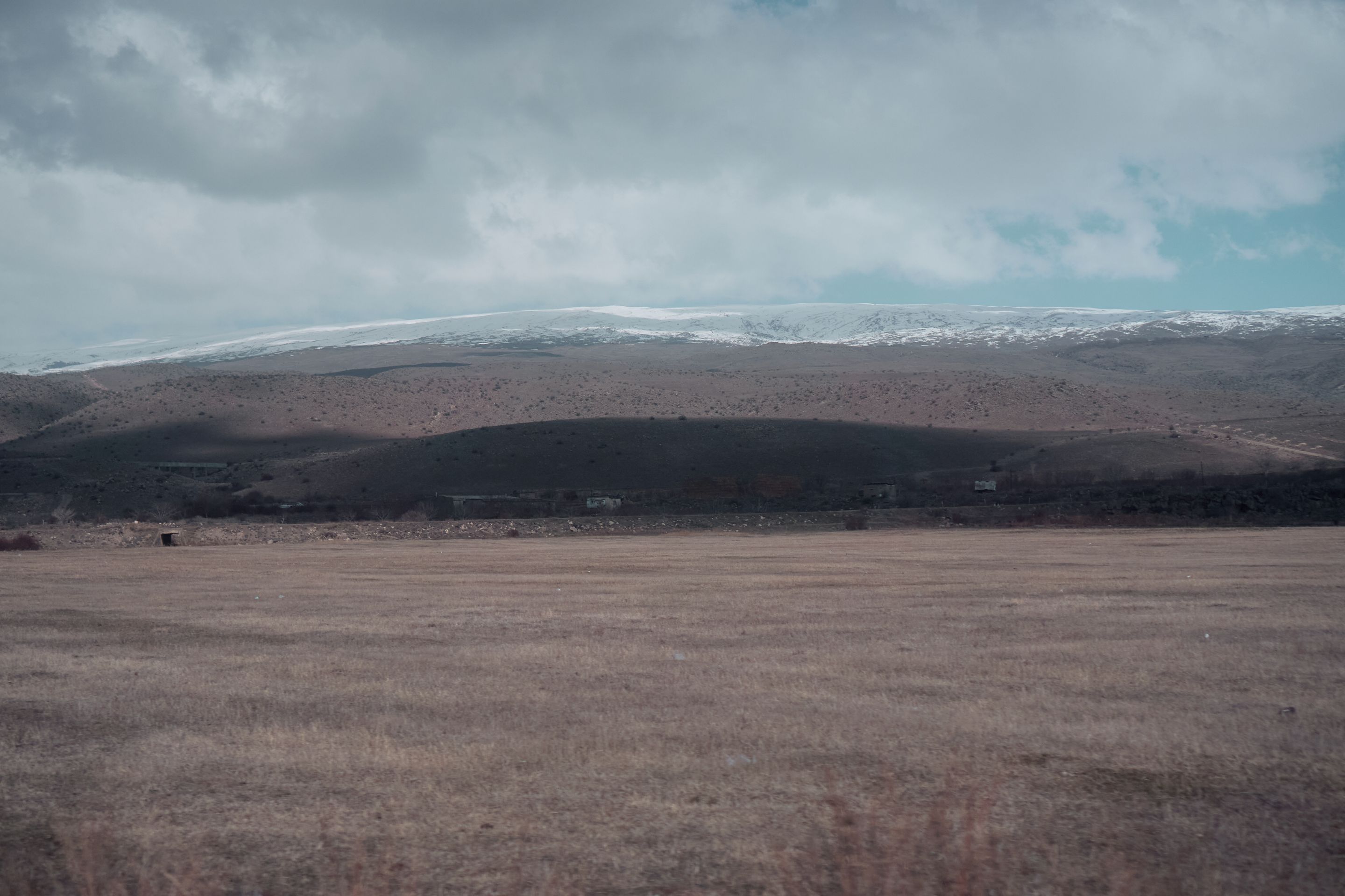
The decision to travel to Georgia was something relatively sudden. Within two days we planned to get the minibus from about an hour out of Yerevan to the Georgian border, to a remote village just on the edge of it. The journey was about three-to-four hours in length, and the minibus was us two, as well as three other elderly Armenian women that coincidentally lived in the same village we were heading to. It was odd to me that you could just get a bus to another nation, and how little complications there would be regarding visas and passport control. An interesting concept that kept me calm throughout the whole process, until it came to entering Georgia, but I'll get to that part in one of the later posts as we reach that segment of the journey. We initially assumed the trip would be longer than about four hours in length, and packed our bags with some snacks, as well as various things to do under the assumption that most of our day would be spent in a bus with little to do, only perhaps having the odd stop somewhere. Fortunately it wasn't long at all, and it turned out to be quite a fun trip. Now typing this from an old mountainside village in the Georgian (formerly Armenian) mountains where water runs fresh from above in its plenty, and tradition here is strong under the reliance of farm life.
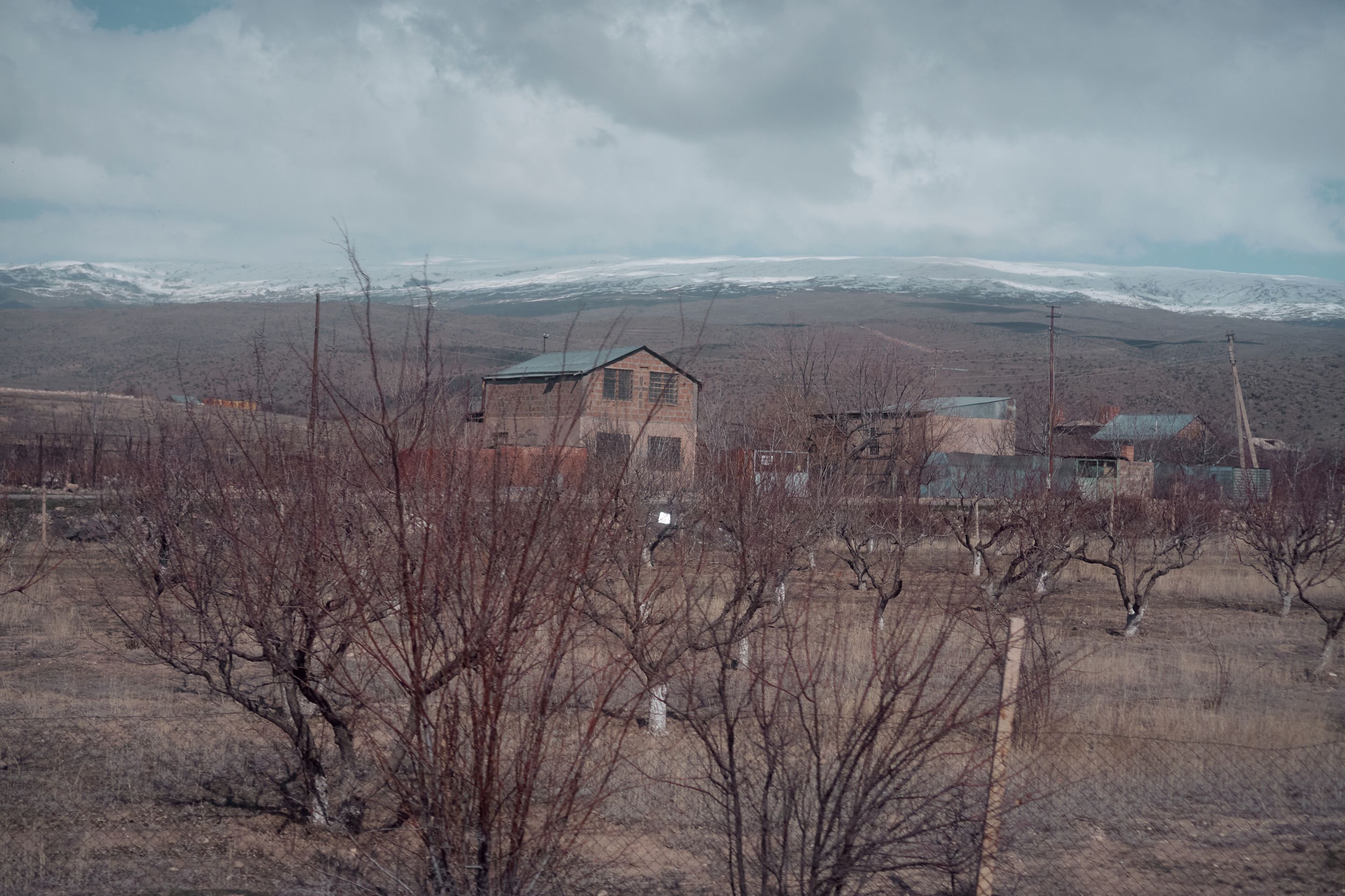
With little sleep, we woke up far too early, as the bus would come around 12PM. Bags packed, coffee reliance strong, the bus arrived and we hopped on. The landscape to begin with was normal, an area in which we had been through a few times before, but we pressed on, mountains in the horizon that grew larger with each passing minute. The scale of them leading us to then looking down at the area in which we had just left. Small fires in the distance coated the horizon in a dense smoke. Even more in the distance were even larger mountains, Ararat towered over. Small glimpses of its presence visible in the clouds. We dressed with clothes that would prepare us for the inevitable cold weather in Georgia, a little too warm to begin with on the bus; though quickly the temperature began to drop. First noticeable was the presence of snow, little specks here and there on the sides of hills that were opposite the sunlight. Roads here were pretty scary. Rocky, thin, bending and turning upward. Left unmaintained for the most part.
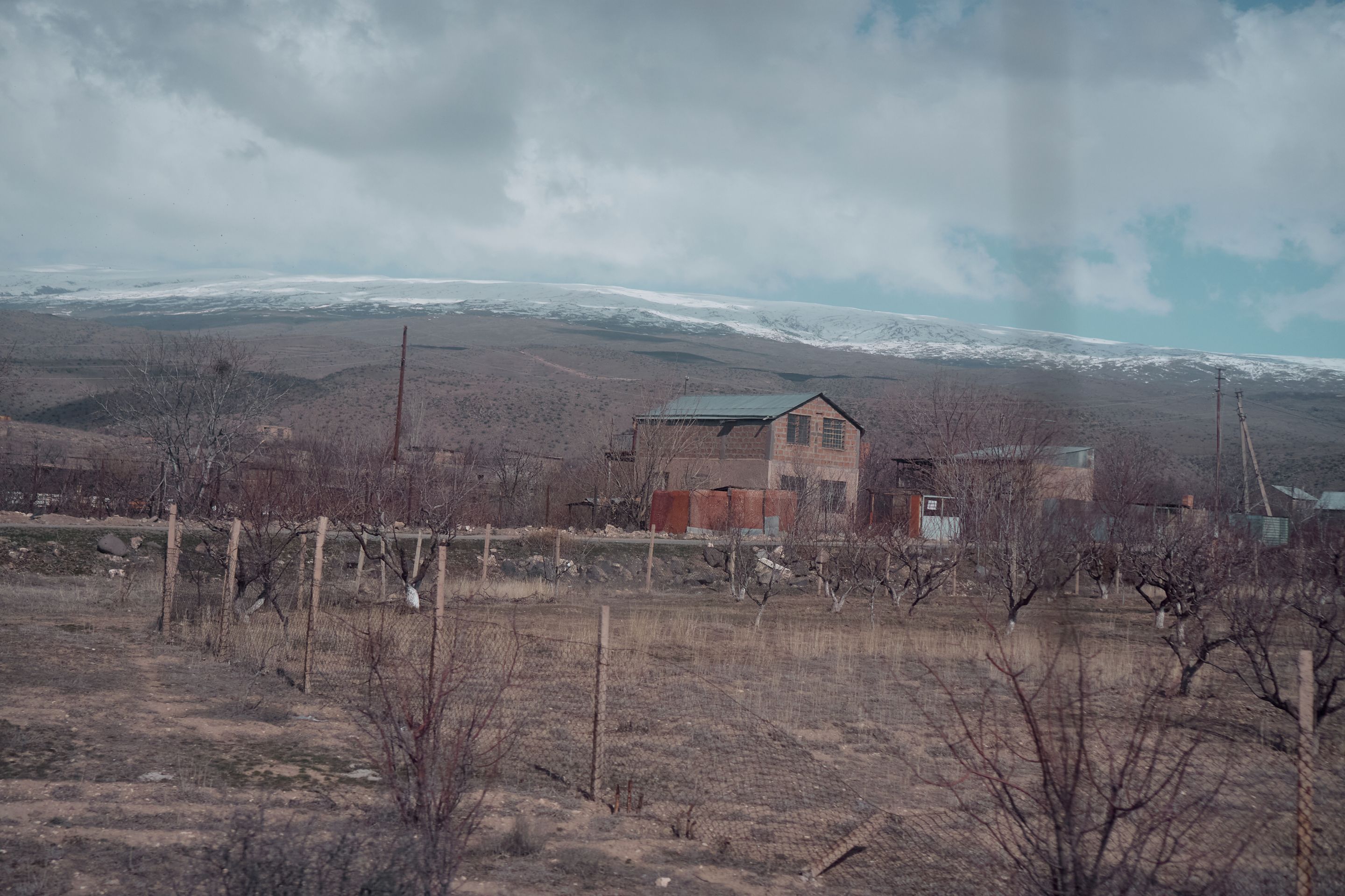
We passed through small villages at first. These villages are true villages in the sense that they barely have any connection to the modern world. Their water supplies are their own, power lines looked destroyed from years of neglect and harsh weather. Farming equipment looked rustic and left ignored. This was something we saw often throughout the trip whenever a small farm would pop up, and it was interesting to see the differences in farming life compared to England, where it's so heavily industrialised now; here, it is still very analogue. Still very reliant on the old way. I liked seeing that, some aspects of tradition. Still very hard on the workers that thrive on whatever produce they can get, but a way of life that many are still content with.
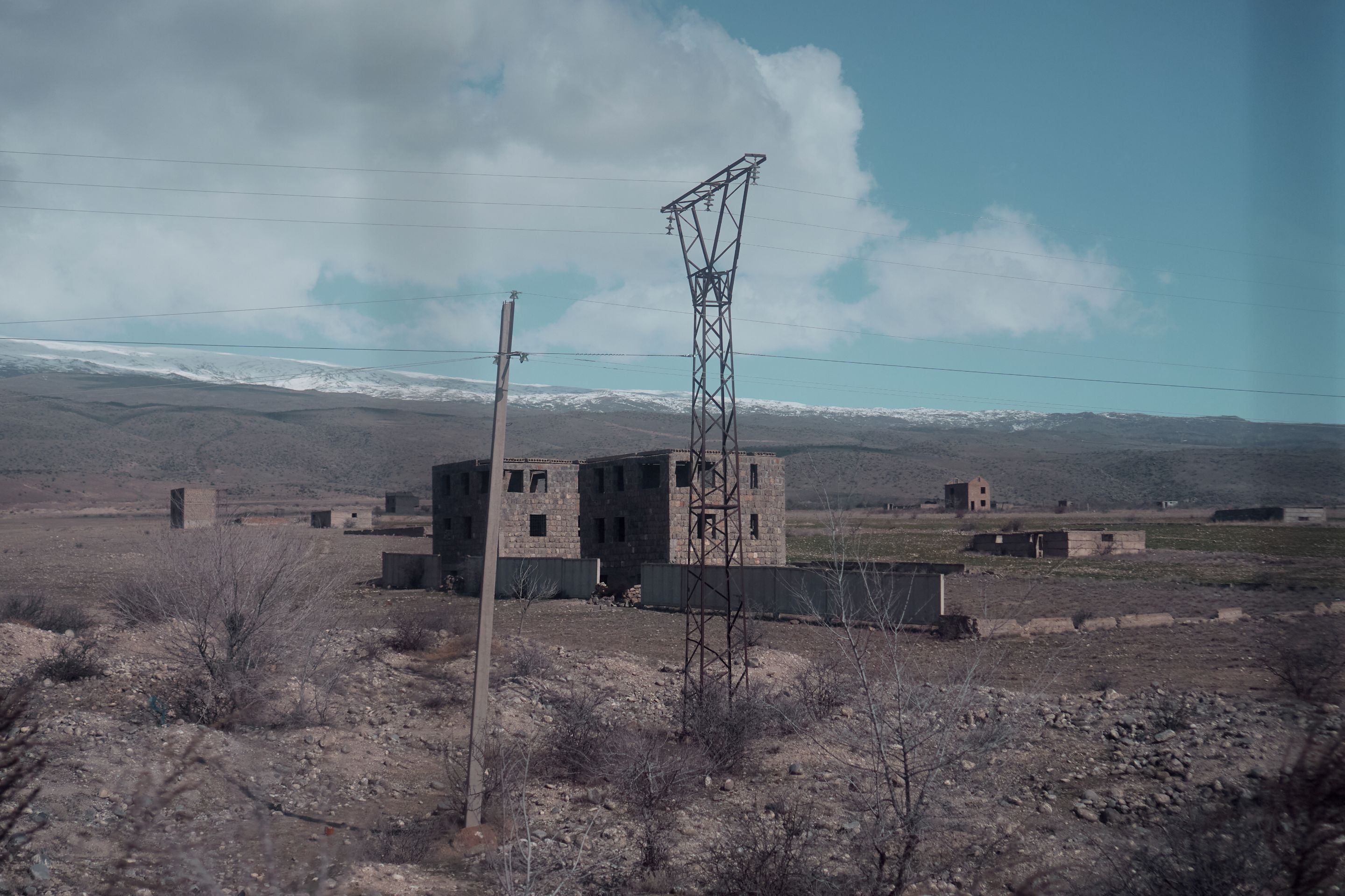
With space between these villages were harsh roads and rocky landscapes. As mentioned, the roads would twist and turn upward. It seemed at times that the driver didn't care for the fact that we were on the edge of mountains, with long drops on the sides of turns. He would speed around bends with such intensity that we would be thrown to the sides of the car. Somehow, for the much of the journey, the three elderly women were happily talking away without any concern. Clearly seasoned professionals in this journey. For us, however, it was a little sketchy. But very thrilling to have a bit more sense of adventure in this trip.
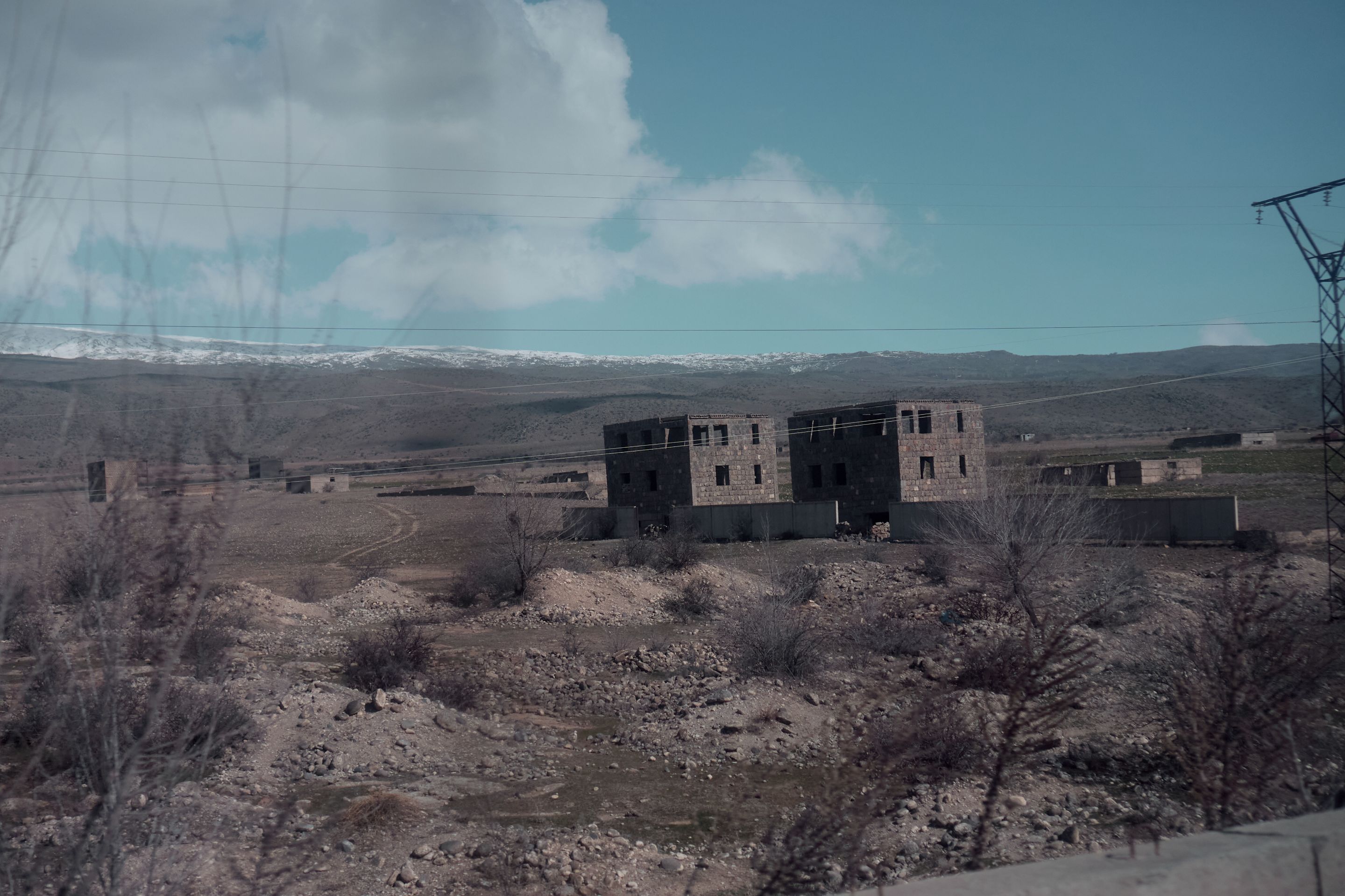
To begin with, much of the landscape seemed like a wasteland. It is the time of year where farmers don't have a whole lot to do. Trees are covered to protect them from the cold, and not much really grows around this time of year. The environment seemed like something of a post-apocalyptic wasteland with how dry it looked. Tones of grey and brown throughout. Trees void of colour. The mountains remained in the distance, some elements of snow visible, though at this point I had no idea we were basically heading straight for them. It's interesting to me how quickly the environment shifted and changed, areas of nothingness, to rocky landscapes and industrialism, to endless horizons of snow and mountains.
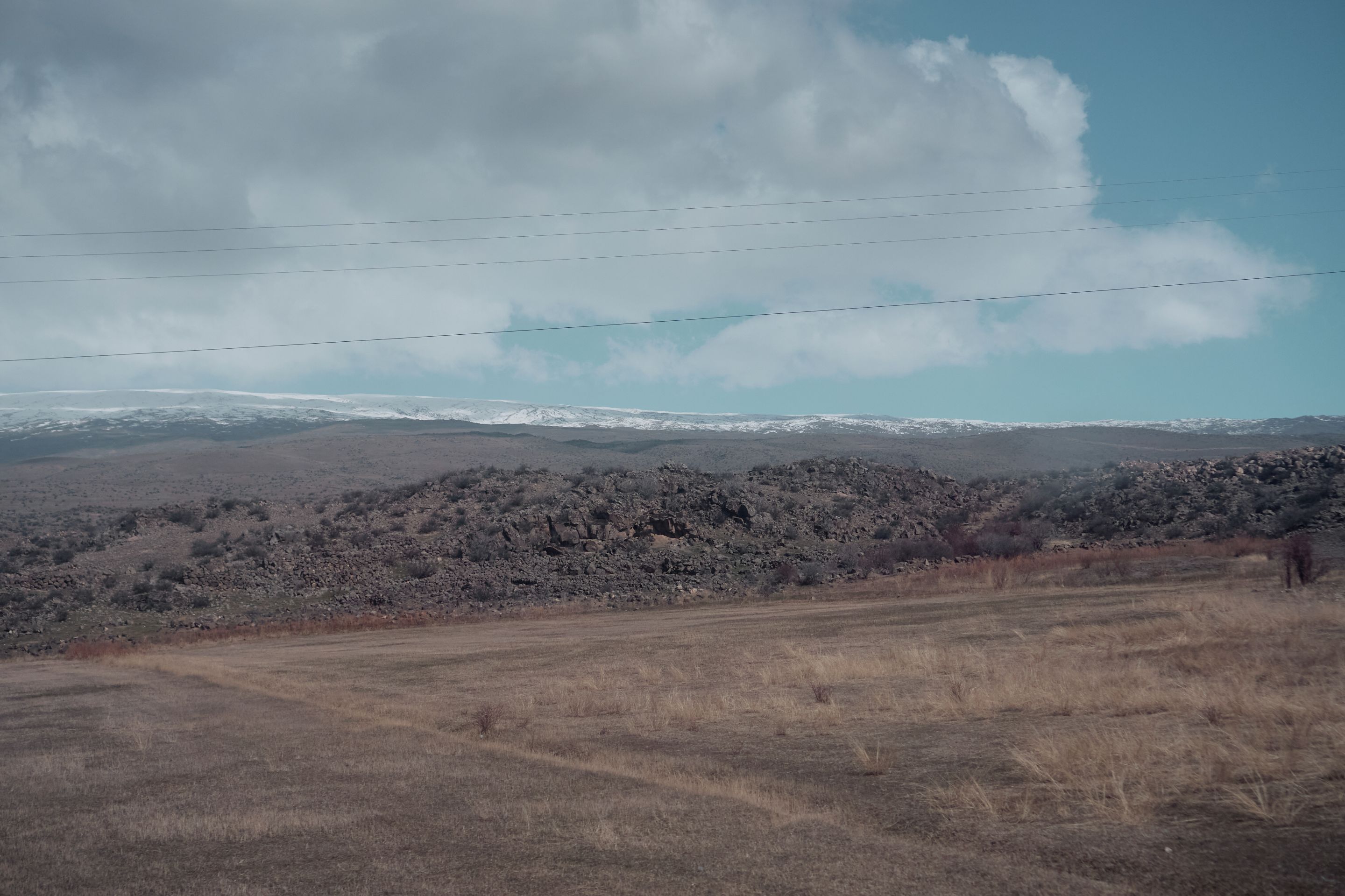
The houses here remained generally the same. Many abandoned in the slow development that led to their collapse, or the times changing that led to new generations moving out. Many homes were left unfinished. Buildings without windows, their foundations and cores still present. Sometimes you'd see a building so old that it was clear that time had left it to rot. Homes over a hundred years old made of stone, their foundations being the main thing still present. Rundown barns came in second place. Old Lada cars were the go-to method of transportation in this area, it seems. Old Soviet homes still stuck in the past, left by the modernisation of the cities. Is that a bad thing though? It seemed more true to life, observing these ways of life in the bus as things changed. I couldn't help but think of the differences in life, and from what I had seen: such people were actually more happy and cultural than those in the city.
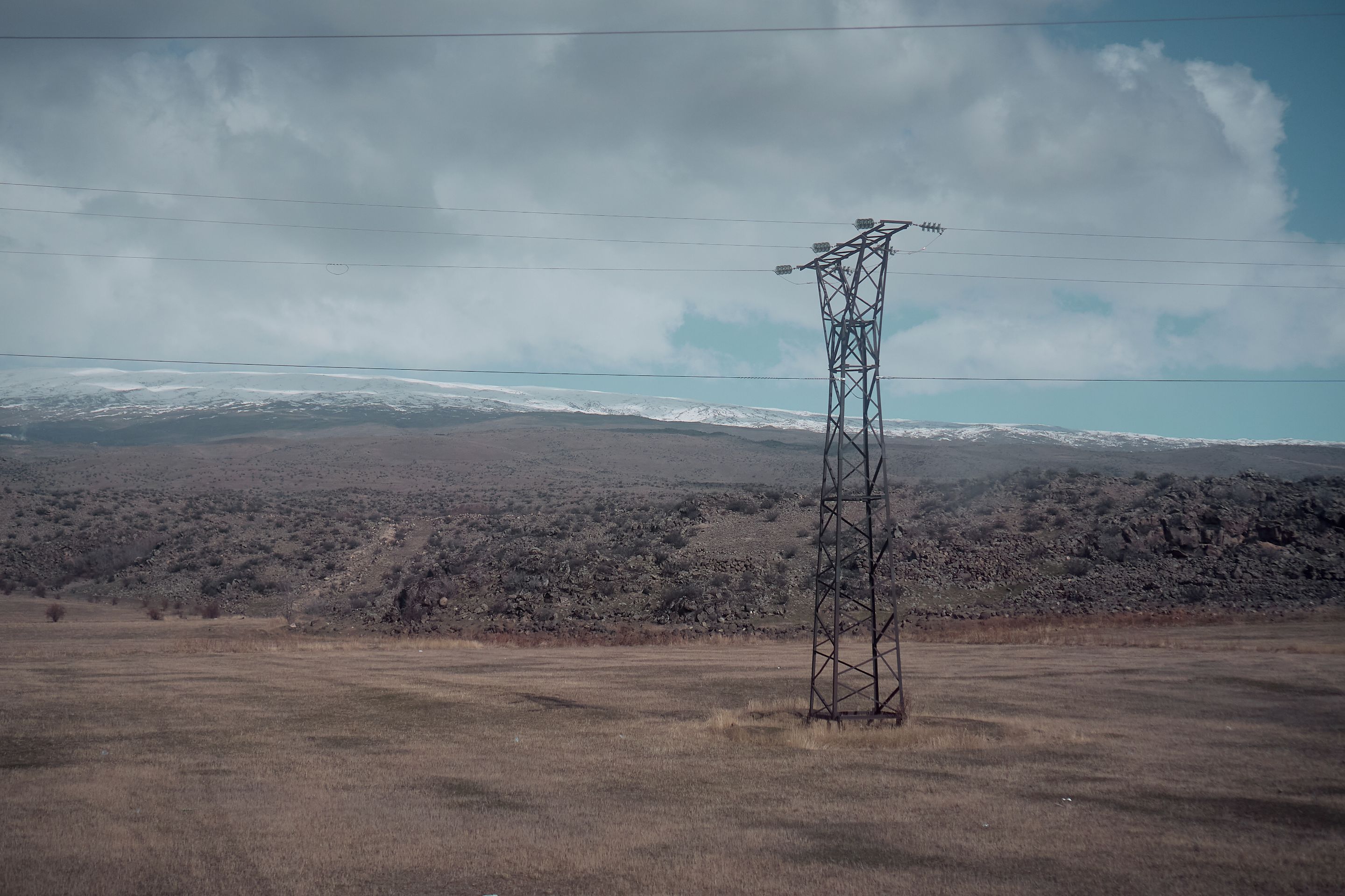
I have no doubts that these areas would display the utmost beauty under the spring and summer seasons. The colours that would emit from the fields and the trees. The sunlight that would climb over the mountains behind and reach the fields. That contrast between life and would looked like death is interesting. Quiet, almost untouched. Nobody seemed to be around in this area. The odd car would pass. Perhaps a fruit seller of some sort would stand by the road with the boot of his Lada open. Perhaps an old farmer would be taking something out of the home into the field. Rare signs of any life along the road. I searched for it, eyes glued to the horizon.
The journey had only just started, and I had seen so much. So curious, so excited to see more. To see Armenian life in its true form. The minibus pressed on down the dry roads. Anyway, that's just part one of this little adventure, and things grow to a lot more fun coming up!